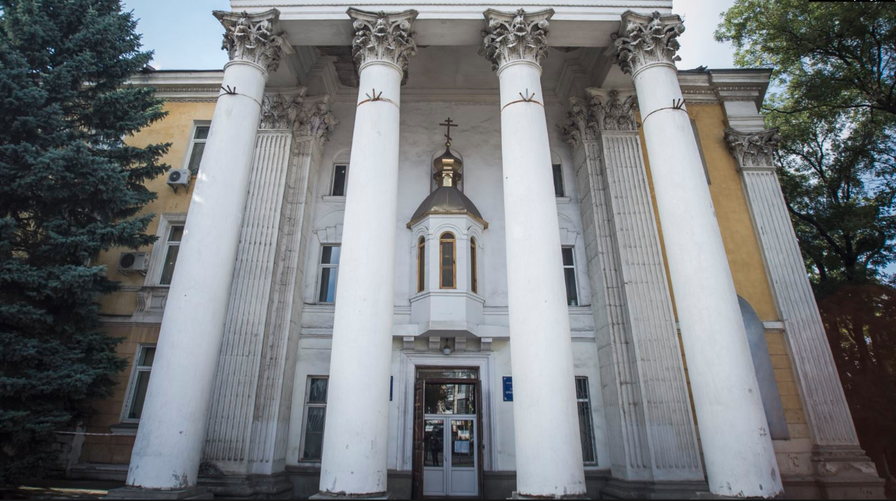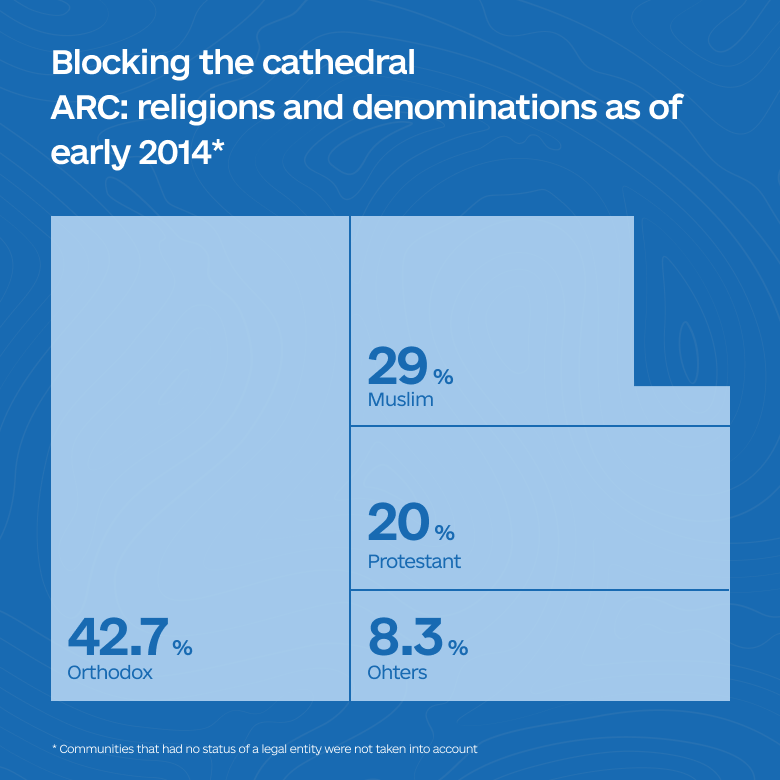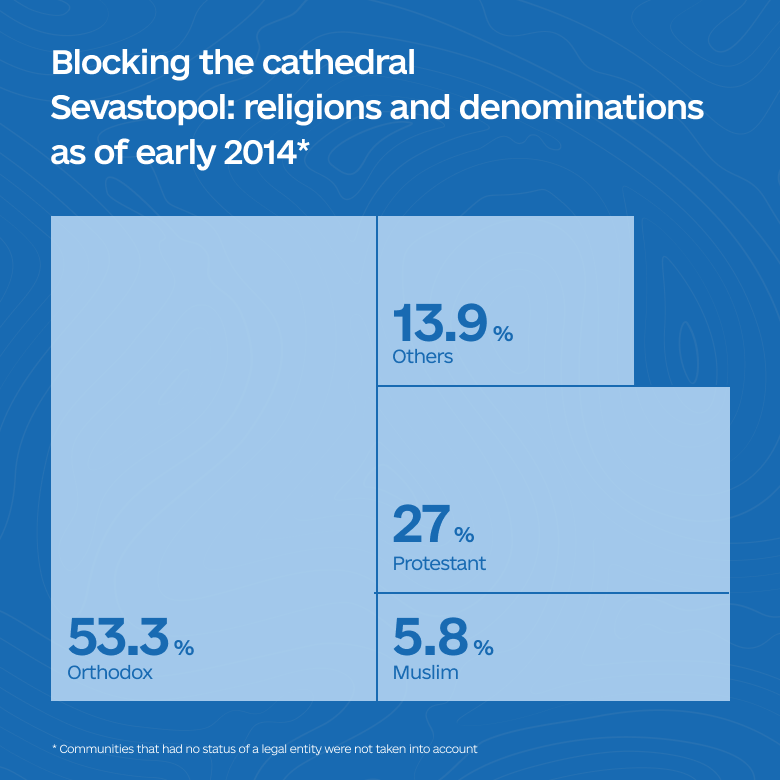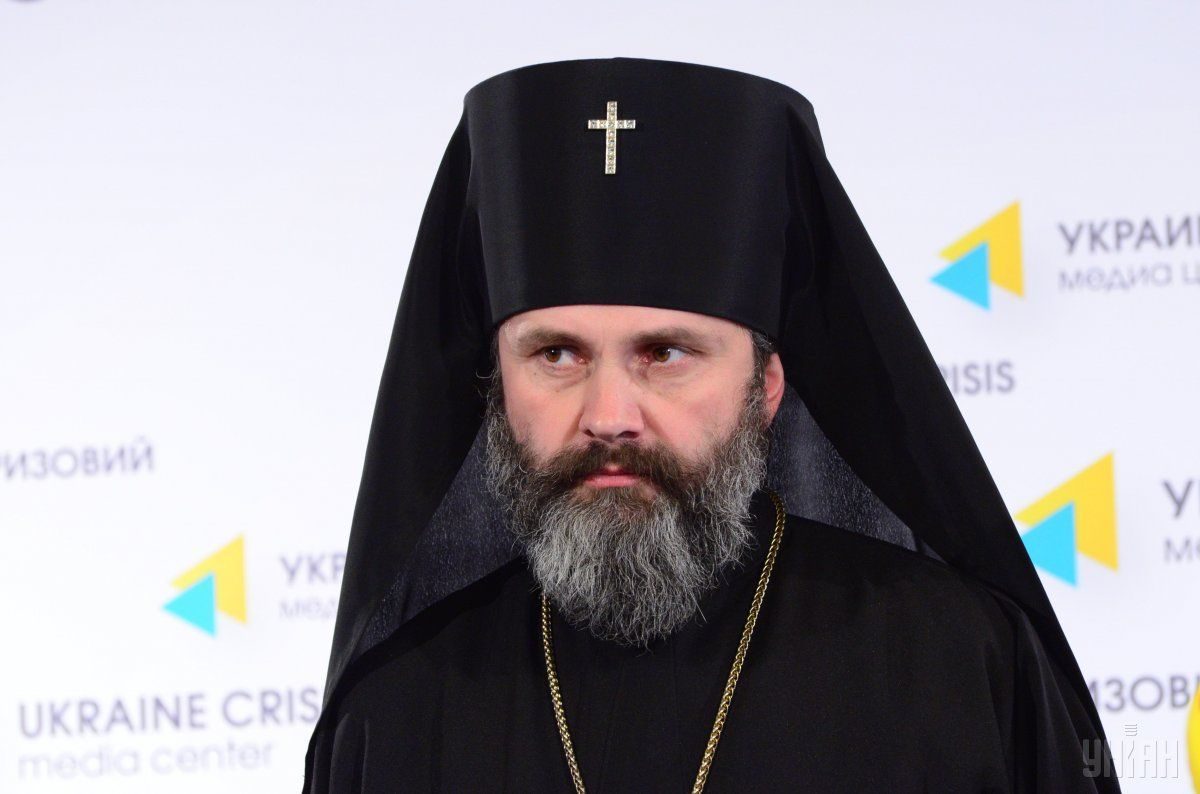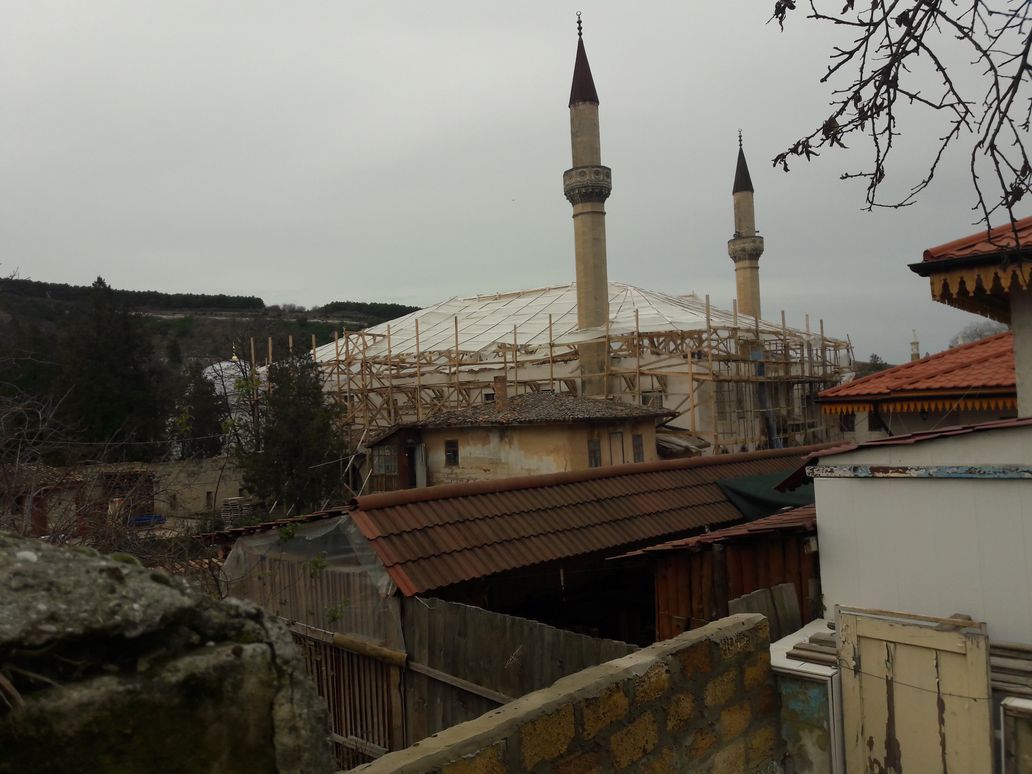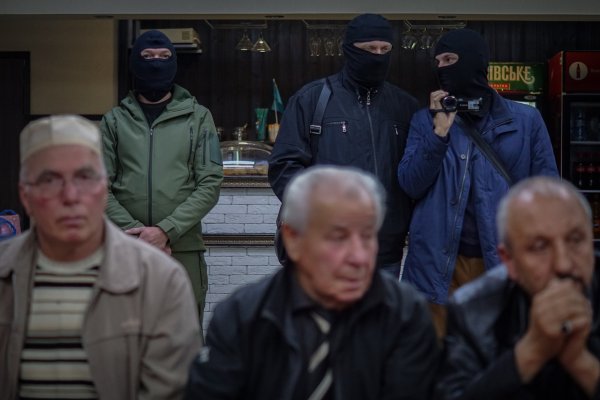The Office of the Crimean Diocese of the Ukrainian Orthodox Church of the Kyiv Patriarchate (OCD) is a religious organization that has the status of a legal entity in accordance with the laws of Ukraine. Back in 1995, the Ministry of Defense of Ukraine handed over to the OCD UOC-KP some of the non-residential facilities of the military base in Simferopol under a lease contract. By resolution of the Verkhovna Rada of the Autonomous Republic of Crimea in 2001, the formerly leased part of the property complex was leased to the OCD at no charge until 2050. And in 2003, some of these facilities were allocated and handed over to the Ukrainian Orthodox Spiritual Center (UOSC) for the conduct of business activities and provision of financial support to the OCD, which became the co-founder of the UOSC.
Under the occupation, the decree of the so-called "State Council of the Republic of Crimea" No. 2059-6/14 dated 04/18/2014 first confirmed the right of the OCD to occupy these facilities up to 2050. However, by 01/01/2016, due to the requirements of the occupation administration, the Orthodox Church of Ukraine lost its status of a legal entity. The OCD was stripped of the right to conclude contracts and to open or run bank accounts. Under the circumstances, the parishioners decided to officially register their religious community not as a structure of the UOC-KP (OCU) in Crimea but rather as a structure of the local Crimean religious community. However, their submissions were rejected three times in a row, each time under a new excuse.
Therefore, the community lost the powers to rent any other premises to continue their activities in Crimea. The OCD owns a land plot received from the Ukrainian authorities back in 2014 for the construction of a cathedral in Simferopol but is unable to proceed with the construction. Moreover, under the occupation, the title to this land is being challenged. The legal battle between the Ukrainian Church and the judiciary of the occupying power has been going on for years.
The first attempt to seize the premises of the OCD took place on 05/29/2015 when the so-called "Ministry of Property and Land Relations of the Republic of Crimea" organized an auction without notifying the tenants. The so-called public non-profit association for promotion of SMEs in the Republic of Crimea RAZUM won the tender for the lease of the premises. However, the new lease was not executed after the information about the illegal auction was made public.
The occupants stepped up their pressure as the aforementioned ministry decided to increase the rent for the use of the real property of the OCD, the UOSC and the cathedral itself. Representatives of the Crimean Diocese of the UOC-KP filed an appeal with the so-called Arbitration Court of the Republic of Crimea. In turn, the so-called "Ministry of Property and Land Relations of the Republic of Crimea" filed a counterclaim. In January 2016, the so-called "court" dismissed all the claims of the representatives of the UOC-KP (1), but sustained the motion of the "ministry". Judge Irina Sokolova on 01/21/2016 ruled to not only vacate the premises occupying 112.6 sq. m on the ground floor, where the UOSC was located, but also imposed financial penalties on the church.
The UOSC challenged this judgment in the court of appeals. By the ruling dated 06/21/2016, the so-called "Twenty-first Arbitration Court of Appeal (Sevastopol) dismissed the appeal (2). The UOSC went on to the court of cassation challenging the apellate ruling. The OCD filed a lawsuit as well, because the litigation concerned the premises it was using. Both writs of appeal were accepted for joint consideration, but the first one was rejected by the Arbitration Court of the Central District on 09/29/2016 (3), whereas the cassation proceedings on the lawsuit filed by the OCD were terminated. The applicant challenged the last ruling in the Supreme Court of the Russian Federation. However, by the decision dated 02/13/2017, the cassation proceedings were terminated (without the presence of the applicant and without any notification about the time and the venue of the case) (4).
There were attempts to block the ground floor of the Cathedral of Sacred Equal Apostles St. Prince Volodymyr and St. Princess Olga on 11/08/2016. The next attempt happened on 08/31/2017. The so-called "bailiffs" acted brutally (5): they broke the locks and tore down the doors to the chapel of Christ the Savior and to the charitable dining room, destroyed property, took away the churchware, and broke into the altar area, thereby desecrating the church (according to Orthodox canons, only priests have the right to enter here). The OCD representatives pointed out that such actions were totally uncalled for, as the premises in question had a separate entrance and were perfectly accessible from the courtyard.
Criminal enforcement was perpetrated by the so-called "acting head of the Federal Bailiff Service (FSSP) Administration for the Republic of Crimea" Igor Rudakov and by so-called "bailiffs" Alexander Kostenko and Andrey Byunik. The so-called deputy head of the FSSP department for the Central District of Simferopol Yuri Vakhtin used force against Kliment during these events. The archbishop sustained a dislocated arm. He made a statement to the police, called the ambulance and documented all the facts of violence.
The invaders moved the seized property (icons, books, churchware, furniture, equipment, etc.) to the so-called "Ministry of Property and Land Relations of the Republic of Crimea" for storage. Any attempts to appeal against lawless acts or at least to get back the churchware proved to be futile. In this context, the above mentioned Ministry in its letter dated 10/12/2017 urged the petitioner to register in accordance with the legislation of the Russian Federation and "bring the lease agreement in line with the requirements of the laws of the Russian Federation" (6).
At the beginning of 2019, the occupation administration started a lawsuit against the OCD and demanded the eviction of the organization from the Cathedral of Sacred Equal Apostles St. Prince Volodymyr and St. Princess Olga in Simferopol.
In June 2019, before the first judgment was made, the occupants imitated an intention to renovate the main church building in Simferopol. In fact, its destruction began: the builders dismantled the roof of the cathedral, which led to the flooding of the church premises and damage to the property. A fence was installed around the building, windows and doors were taken out.
On 07/05/2019, it was decided to confiscate the cathedral from the OCD (7). By the judgment of the so-called "court", the building was handed over to the "Ministry". The OCD was also ordered to pay 12,000 rubles in court fees.
On 09/18/2019, the "bailiff service" of Simferopol started the enforcement of the decision. The deadline for "voluntary compliance" was set at 5 days.
The Supreme Court of the Russian Federation rejected the motion to reconsider the decision to evict the OCD from the Cathedral in Simferopol on 08/04/2020. However, the resistance continued.
As of the end of May 2021, the OCD and the Cathedral in Simferopol were still keeping their premises. Curiously enough, the OCD had not received a single document regarding the enforcement of the decision of the Supreme Court of the Russian Federation.
 Simferopol
Simferopol
 2017-08-31
2017-08-31
